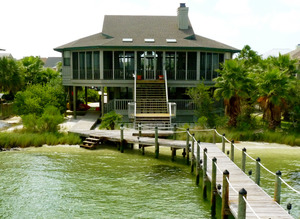 Home swapping is a great way to experience travelling the world, living like a local and saving huge amounts in accommodation costs. Every day there are thousands of people who are visiting other people’s homes on holiday and vacations. These could be local trips within your own country or they could be international travel, where you experience a whole new country. If you are considering home exchange for the first time, you might be cautious and think ‘Is this really for me?’ Like many things in life, when trying something new, it is always a good idea to do some research. There are other blog postings here on Silver Travel Advisor for you to learn more about home exchange. In this blog, we would like to share with you things to watch out for and avoid. Here is our list:
Home swapping is a great way to experience travelling the world, living like a local and saving huge amounts in accommodation costs. Every day there are thousands of people who are visiting other people’s homes on holiday and vacations. These could be local trips within your own country or they could be international travel, where you experience a whole new country. If you are considering home exchange for the first time, you might be cautious and think ‘Is this really for me?’ Like many things in life, when trying something new, it is always a good idea to do some research. There are other blog postings here on Silver Travel Advisor for you to learn more about home exchange. In this blog, we would like to share with you things to watch out for and avoid. Here is our list:
- When looking at properties to visit on the internet, avoid listings with few or no pictures for you to view. Often the reasons for this are because either the other party is not really serious about trading or the property isn’t worth photographing. Both are good reasons to avoid the listing.
- When you are hosting other people, don’t leave valuable or fragile items out. In over a decade of experience in exchanging, we have never heard of a theft or an expensive item being broken, but it is always good to be cautious. Put precious things away and avoid a potential problem. Accidents can happen, be smart – place valuables and fragile items locked up and away.
 Don’t embellish the truth when describing your property. All of us are proud of our homes, be honest when creating your listing. You expect the same when you are travelling to another person’s home. Home exchange is based on honesty and trust.
Don’t embellish the truth when describing your property. All of us are proud of our homes, be honest when creating your listing. You expect the same when you are travelling to another person’s home. Home exchange is based on honesty and trust.
- Don’t buy travel (airline or rail) tickets before getting an exchange agreement with the other party. Your home exchange network can help you finalise an agreement.
- Don’t pursue a home swap with someone who is poor communicator. This is a sign that they are not really interested. It is best to find a trader who is open and communicates in a timely manner.
- Watch out for home exchange networks that don’t have clear and easy to use contact details. Websites can be great, but ensure they have an address and phone number. Any reputable exchange network will make themselves easily available to communicate with its members.
- Don’t agree to a trade without verification of the people and their property. Some home swapping networks have validation programs and can assist you in this process. If not, you can always do some checking on the person on your own.
 Do not send money to a host property owner in advance. The basis of home exchange is to avoid paying for accommodation. The exception here is a damage deposit which is a reasonable request; this should be paid only near the time of exchange. Our recommendation is to use a third party service like PayPal where the host can refund the deposit back to you, even after several weeks, with no service charge to either party.
Do not send money to a host property owner in advance. The basis of home exchange is to avoid paying for accommodation. The exception here is a damage deposit which is a reasonable request; this should be paid only near the time of exchange. Our recommendation is to use a third party service like PayPal where the host can refund the deposit back to you, even after several weeks, with no service charge to either party.
- Avoid exchange networks that don’t offer you secure communications, don’t protect your data and have too many free members. You will need to communicate with others around the world about your home, ensure that your communications are only going to people that have been validated and are truly interested in home exchange. Don’t risk exposing your information and don’t waste your time.
- Don’t travel without insurance. Sometimes when doing a home exchange, people forget about insuring their vacation home. We highly recommend that you get the right travel insurance for you, home exchanging is not an exception.
As a bonus, here is one more item to avoid: don’t do anything that is against your natural intuition or instincts. If a situation doesn’t feel right, trust your instincts and don’t do it. Trading homes is a great experience. Beyond saving money, you have the opportunity to live like a local, enjoy the comforts of a home with all its amenities and space. Remember the eleven items above and we wish you the best in your exchange vacation.
We have recently started a podcast series of interviews where you can listen to experienced home exchangers. To enjoy, please visit – IVHE Podcasts.
 Don’t embellish the truth when describing your property.
Don’t embellish the truth when describing your property. Do not send money to a host property owner in advance.
Do not send money to a host property owner in advance.










